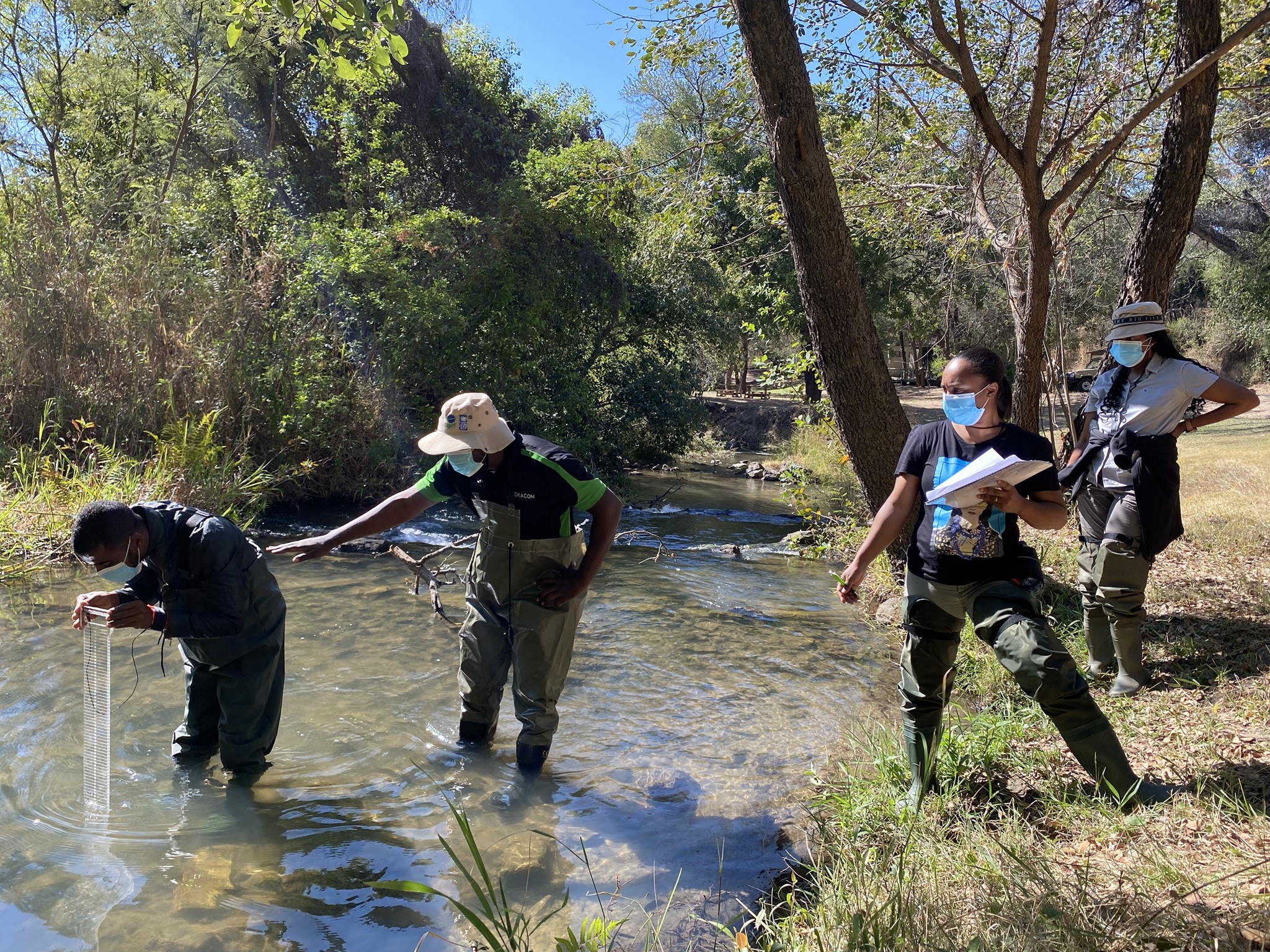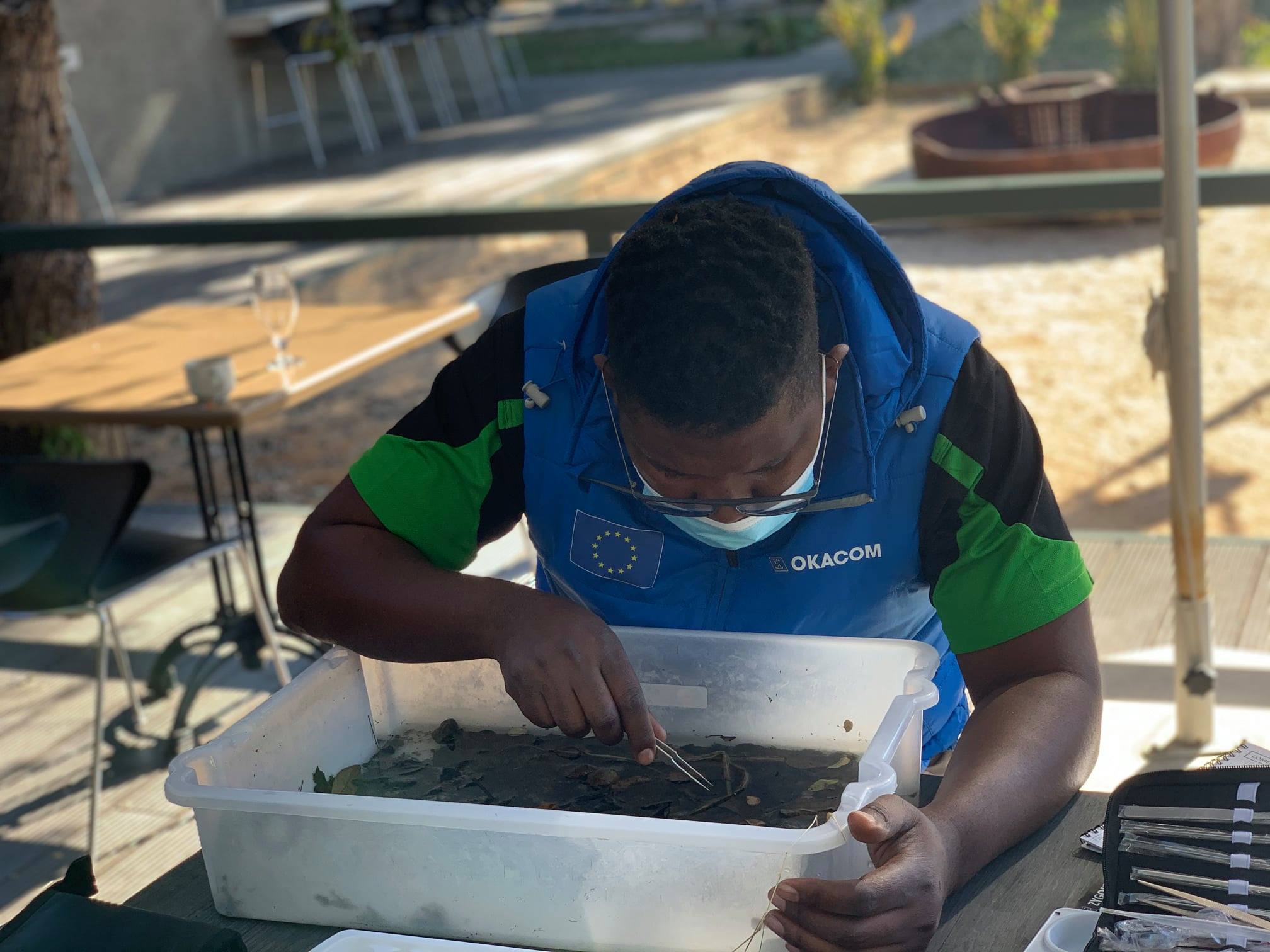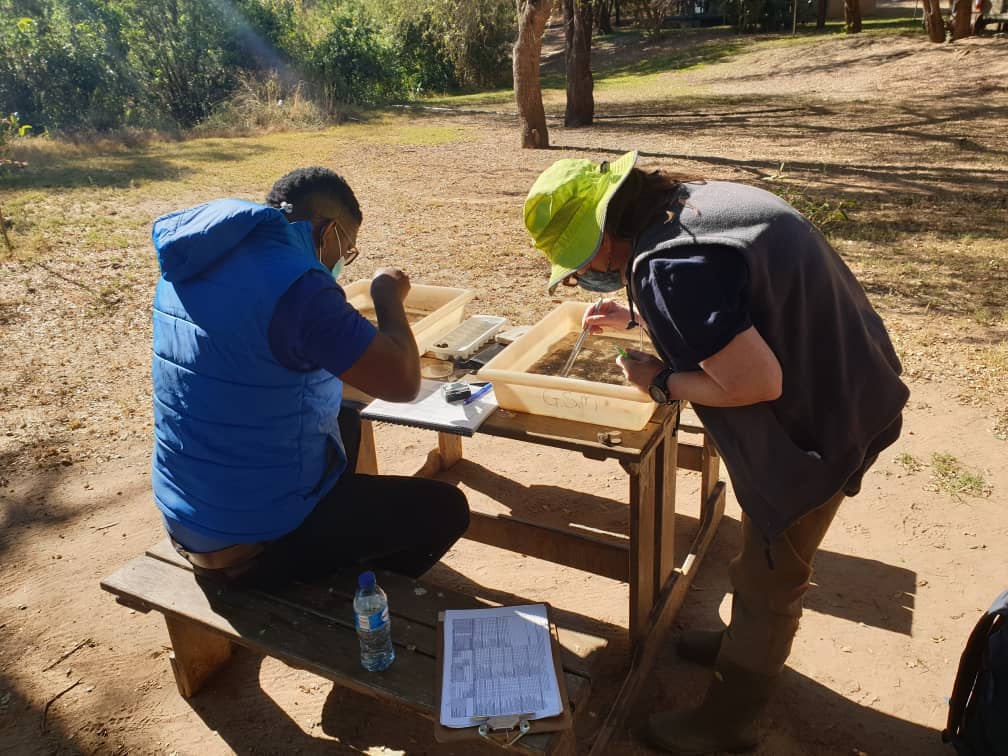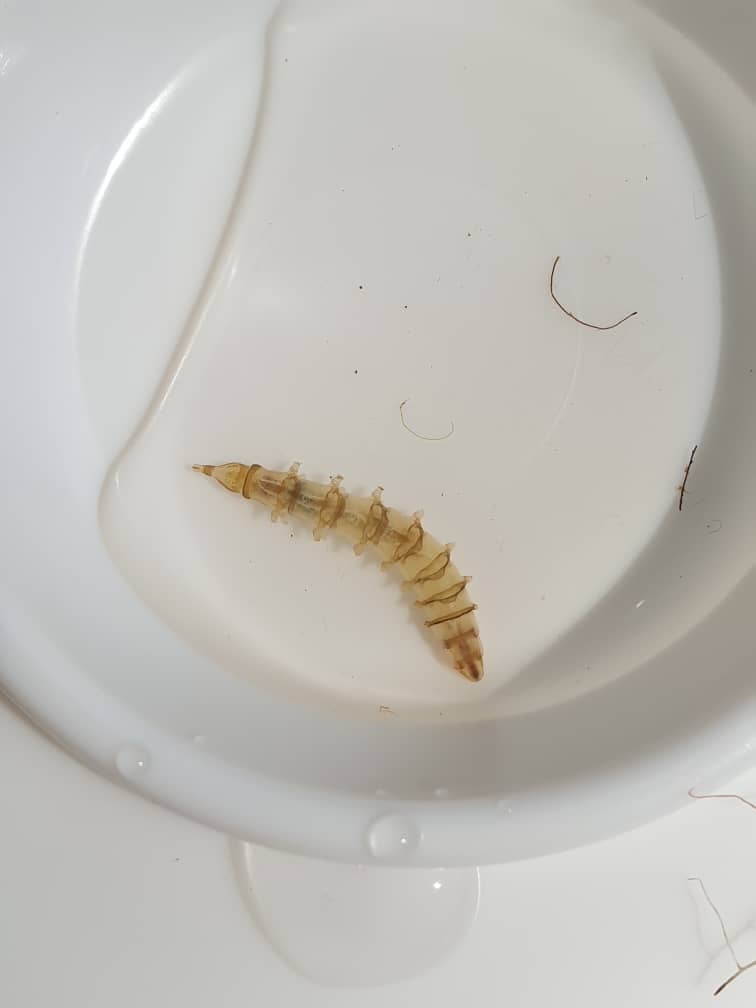- Home
- About Us
- Background
- Mandate
- Cubango Okavango River Basin
- Governance
- Strategy and Approach
- Member States
- Our Work
- Partners
- Climate Resilient Infrastructure Development Facility (CRIDF)
- European Union (EU)
- Southern African Development Community (SADC)
- Swedish International Development Cooperation Agency (SIDA)
- The World Bank (WB)
- United Nations Development Programme (UNDP)
- United States Agency For International Development (USAID)
- Resources
- News and Events
- Opportunities
- Contact Us
- FAQ's
- Connect With Us
- i
- t
- f

Aquatic Ecological Monitoring Training
Monday, July 19, 2021




The EU OKACOM Programme for Transboundary Water Management is actively working to strengthen water management through improved water resources data availability (hydrological and ecological) and establish an early flood warning system. One of the key activities from the outcome related to improved access to hydrological and ecological data in the Cubango-Okavango River Basin (CORB) is developing an ecological monitoring framework, particularly focussed on Macroinvertebrates and Diatoms, in support of river health evaluation in the Basin. As part of this deliverable, the programme recently hosted a training event focussed on Aquatic Ecological Monitoring for members of the OKACOM Biodiversity and Environment and the Water Resources Technical Committees. The training honed in on various monitoring techniques and methods of assessment of the river habitat and water quality. The week-long training was held at Popa Falls, in the Kavango East region of Namibia and brought together 12 participants from the three Member States of Angola, Botswana and Namibia. The attendees took part in both theoretical and practical sessions, facilitated in the two official OKACOM languages of English and Portuguese, by partners from the EU Technical Assistance team.
The overall objective of the training was to ensure that technical staff responsible for conducting aquatic ecological monitoring within the Basin are equipped with the requisite skills to do so. Aquatic ecological monitoring is critical for establishing river health baselines and identifying changes within the river system over time, when the monitoring is repeated in future, thus assessing the ecological state or health of the aquatic ecosystem. The training introduced attendees to the various biological monitoring protocols, online application tools, and data sheets that can be used to assess the river health at selected sites within the CORB. This was identified as being crucial because the CORB consists of different river types, including the Delta which is considered a wetland environment as opposed to a river ecosystem. Various existing macroinvertebrate protocols were presented during the training to enable effective monitoring in the different CORB areas.
"Ecological monitoring training is a breakthrough activity which will upscale from the conventional monitoring programme of Member States which had a strong component of hydrolological flows and water quality and not integrating the desirable biological component, routinely. In recognition of the need to reinforce what the training started, the plan is for the on-coming joint monitoring to broaden the scope towards another ecological monitoring session and to even expose more technical officials to the techniques that were imparted. Including accrediting a wider pool of officials from the Member States." said Portia Segomelo the EU OKACOM Programme Manager.
Thematic Areas & Activities
News
subscribe for news notification by email
Photo Credit: Kostatin Luchansky, National Geographic, Okavango Wilderness Project.
© [current-date:custom:Y] [site:name]

